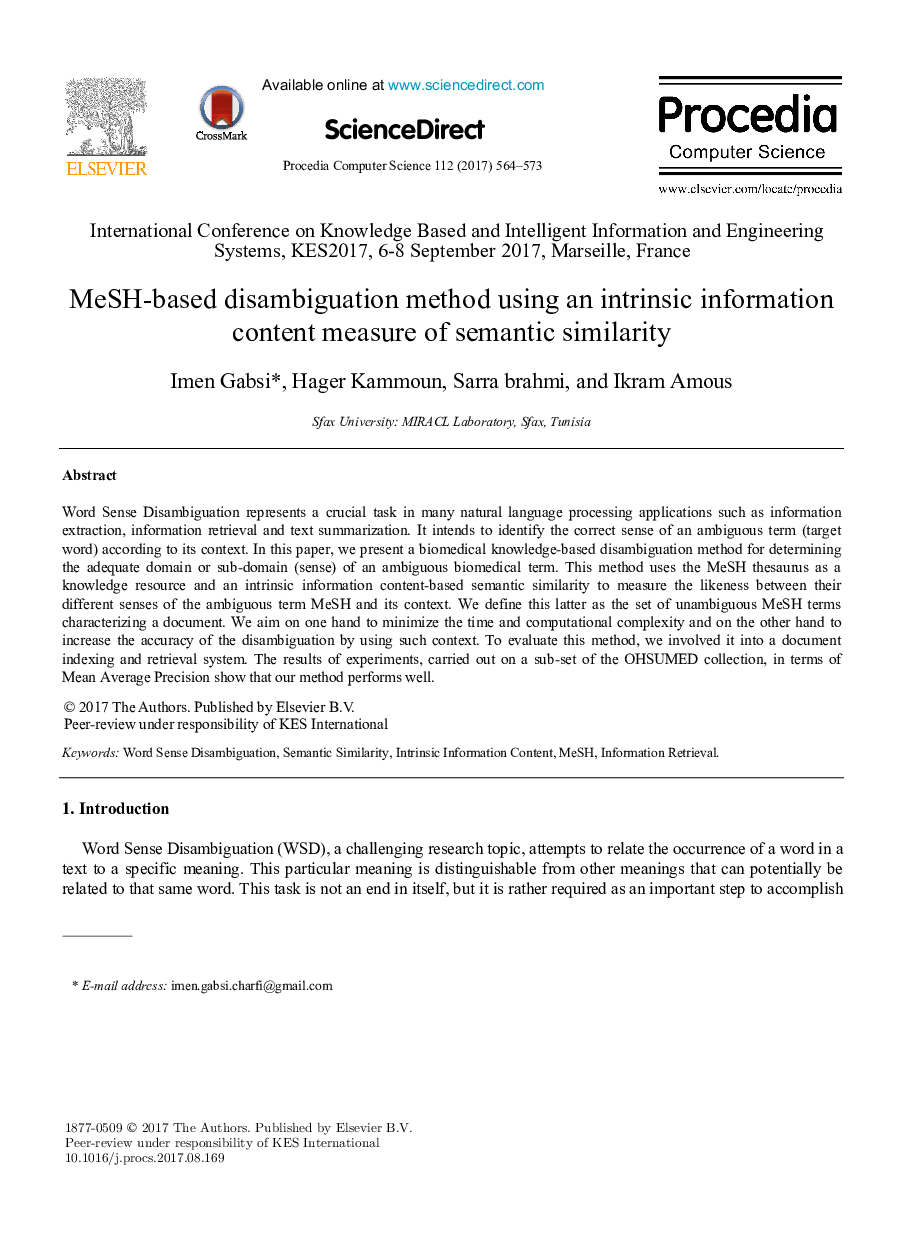| Article ID | Journal | Published Year | Pages | File Type |
|---|---|---|---|---|
| 4960635 | Procedia Computer Science | 2017 | 10 Pages |
Word Sense Disambiguation represents a crucial task in many natural language processing applications such as information extraction, information retrieval and text summarization. It intends to identify the correct sense of an ambiguous term (target word) according to its context. In this paper, we present a biomedical knowledge-based disambiguation method for determining the adequate domain or sub-domain (sense) of an ambiguous biomedical term. This method uses the MeSH thesaurus as a knowledge resource and an intrinsic information content-based semantic similarity to measure the likeness between their different senses of the ambiguous term MeSH and its context. We define this latter as the set of unambiguous MeSH terms characterizing a document. We aim on one hand to minimize the time and computational complexity and on the other hand to increase the accuracy of the disambiguation by using such context. To evaluate this method, we involved it into a document indexing and retrieval system. The results of experiments, carried out on a sub-set of the OHSUMED collection, in terms of Mean Average Precision show that our method performs well.
